Then-Army Air Forces pilot Warren Halstead flew missions daily out of Coulommiers, France, during World War II. On May 8, 1945, he was at his duty station, on break from dropping supplies and transporting wounded to hospitals in England. The news came in: the war in Europe was over. Seventy-six years later, the retired Air Force colonel still remembers the mixed emotions of Victory in Europe, or V-E, Day.
“My thoughts were just that I did my part to help bring about this day,” Halstead said. “Also, remember, the war was still full on in the Pacific in Japan, so our thoughts were that we were still at war, so V-E Day, although it was important, it was not the end of WWII.”
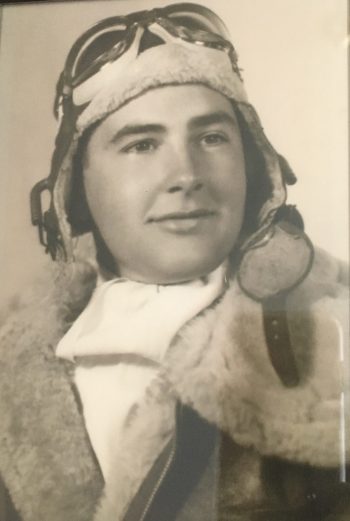
Then-World War II Army Air Forces pilot Warren Halstead.
D-Day
For the Tulsa, Oklahoma, native, the war had a memorable beginning. His first combat mission came 11 months prior on June 6, 1944, during D-Day.
“Just a few days before D-Day, (Gen. Dwight) Eisenhower visited the Airborne units and pilots designated to drop the paratroopers on D-Day,” Halstead said. “It was very impressive that the commander of all of the Allied Forces wanted to give some words of encouragement before our big mission on D-Day. He knew many of us would not return from our mission. It meant a lot to us to hear words of encouragement from him.”
Halstead’s unit arrived at a training location in Ramsbury, England, in February. They trained constantly from then until June 6. Their training to drop paratroopers consisted of night flying and flying in formation. They also trained on towing gliders stateside before arriving in England.
On D-Day, the 23-year-old piloted his C-47 into the skies in the early hours before daylight. The weather was good upon takeoff, but there were scattered clouds when they arrived in Normandy.
“You could see all of the tracers from the munitions being fired at us from the enemy on the ground,” Halstead said. “They all seemed to be coming right into the cockpit, however, our plane was not hit on that day.”
His mission was to drop the 82nd Airborne Division paratroopers no matter what. Flying in groups of three within a larger formation, he safely dropped the paratroopers. The next day, he towed one glider with troops and equipment to Saint Mare Eglise.
Later service
He also flew in Market Garden and Battle of the Bulge, getting hit during both operations. Halstead also flew in Operation Varsity in March 1945. This was the largest airborne operation in history to be conducted on a single day in one location. He towed two gliders of the 17th Airborne Division at one time across the Rhine River. The enemy shot the rudder of his plane just after he released the gliders. They safely landed.
Following the war, he used the GI Bill to attend the University of Tulsa where he graduated in 1950 with a B.S. in Zoology. The Air Force recalled him to active duty during Korea, where he received a Distinguished Flying Cross during a mission flying a B-26 bomber. He retired in 1973, but continued to fly civilian aircraft. He has over 15,000 hours of flying time as a pilot.
Visiting years later
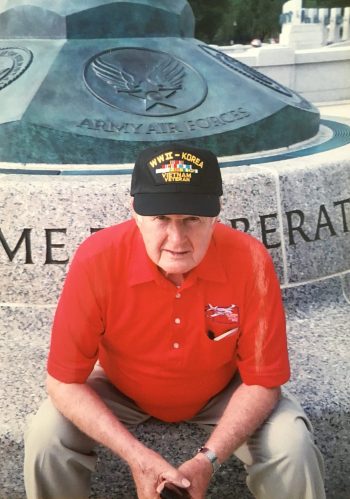
Warren Halstead at the World War II Memorial in Washington, D.C.
Halstead said visiting those countries he fought over decades later brought several emotions.
“I helped them overcome the terrible regimes they were under,” he said. “I am very happy that these countries are thriving today.”
He said thirty years after the war when he was still on active duty, he took his family to visit Germany.
“The country was thriving then,” he said. “The German economy was thriving, and the Germans were all extremely welcoming to the Americans.”
Remembering now
Halstead hopes Americans mark the day honoring Veterans.
“I think the remembrances that the WWII Memorial Foundation conducts at the WWII Memorial are excellent ways to honor our Veterans,” he said. “Additionally, the recognition ceremonies by the various U.S. military services as well as at Arlington Cemetery are very poignant reminders of the sacrifices we as a nation made for world freedom and democracy.”
Halstead’s daughter said listening to stories from the dwindling World War II Veteran population is important.
“Many Veterans, such as my father, do not talk a lot about their experiences,” Gail Capp said. “Just be there for them and be available and ready to listen when they do want to open up. Finally, go to their reunions. You will hear many stories there.”
Help capture history
More than 16 million men and women served during World War II. Today, there’s less than 390,000 still alive.
The National WWII Museum strives to preserve the legacy and lessons of World War II through the stories of those who experienced the war. They accept Oral Histories and memoirs that people have conducted or printed themselves.
Submit written World War II memoirs or stories for the Museum Library by mail to:
The National WWII Museum
945 Magazine Street
New Orleans, LA 70130
attn: Museum Library
Learn more about the museum’s oral history project at https://www.nationalww2museum.org/oral-history-resources.
The Veterans History Project of the American Folklife Center collects, preserves, and makes accessible the personal accounts of American war Veterans so that future generations may hear directly from Veterans and better understand the realities of war.
Learn more at https://www.loc.gov/vets/about.html.
Download a field kit to do interviews at https://www.loc.gov/vets/kitmenu.html.
Video produced by Tass Mimikos.
Topics in this story
More Stories
Bridge My Return launched a software re-build to its hiring platform with an improved AI-driven, skills-matching algorithm and military skills translator.
The Project Flaunt Hub is an online platform of videos, interactive programs and activities. It is designed to empower children, their families and/or caregivers to accept themselves and in doing so, embrace others.
Power of motorsports and road course endurance racing to provide adrenaline therapy and create positive change in the lives of veterans and first responders.

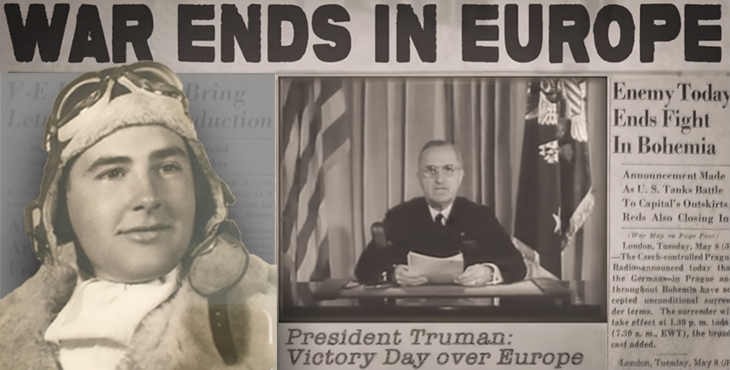
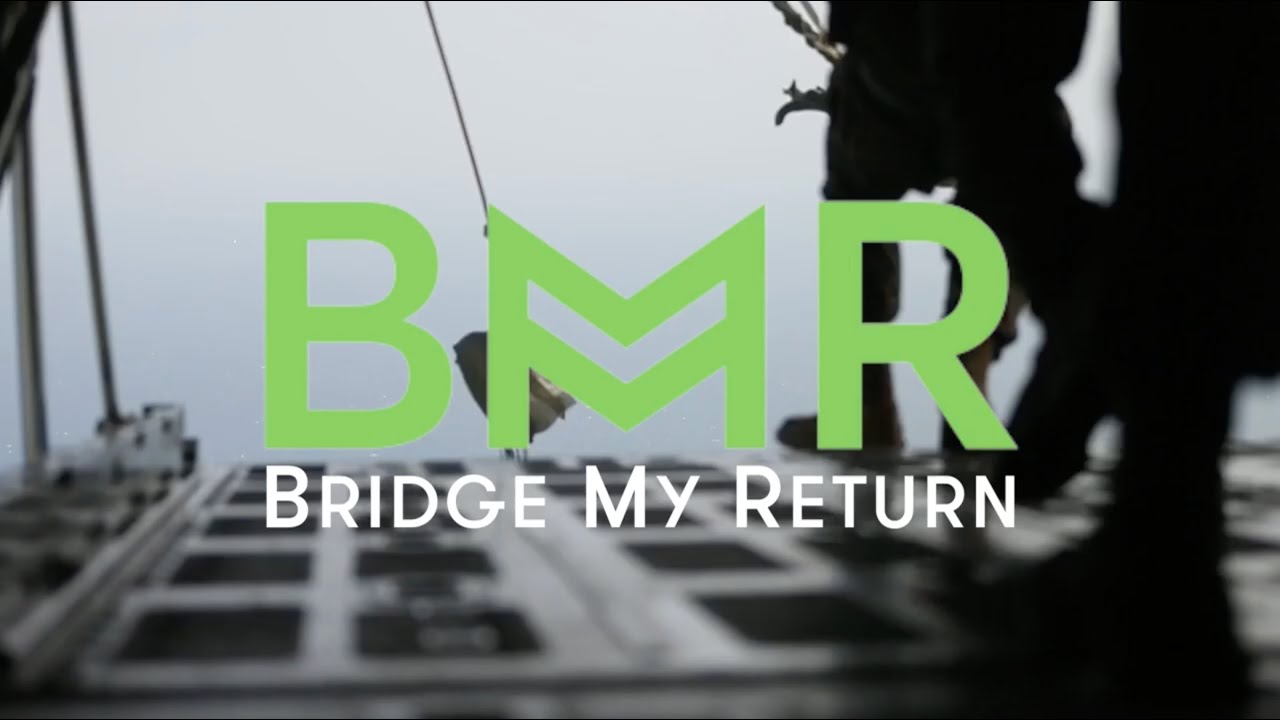
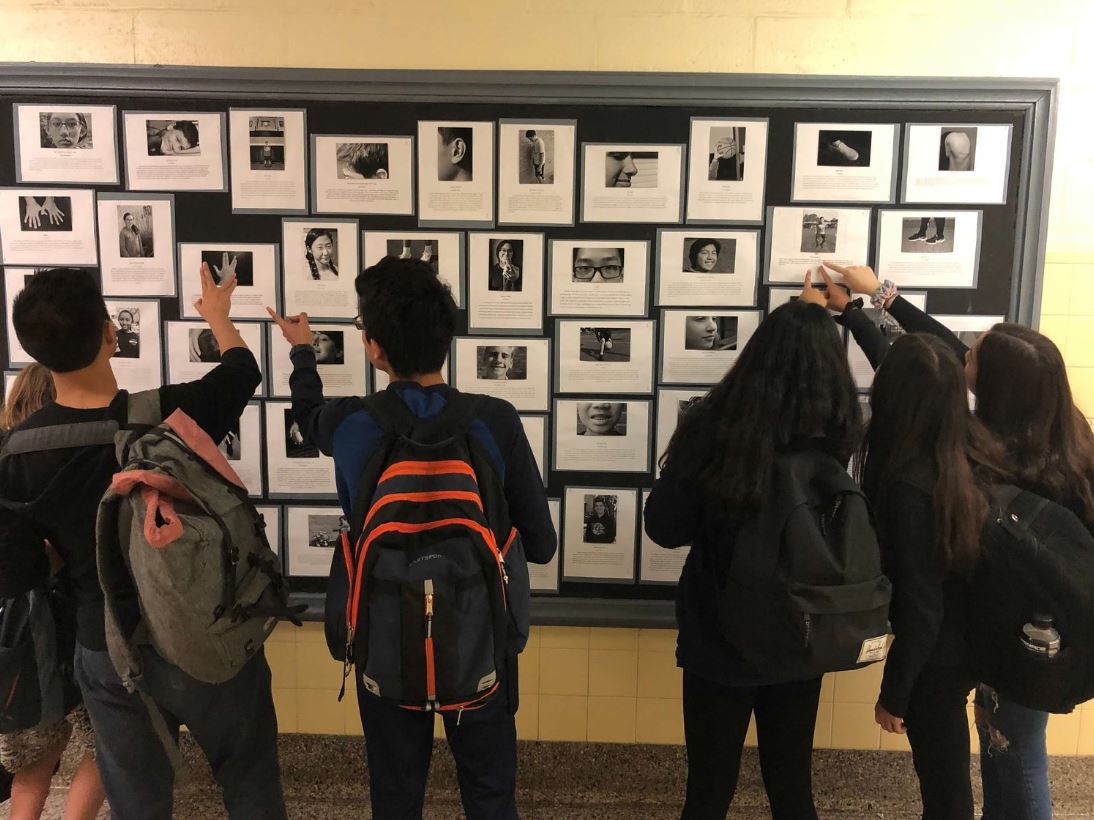
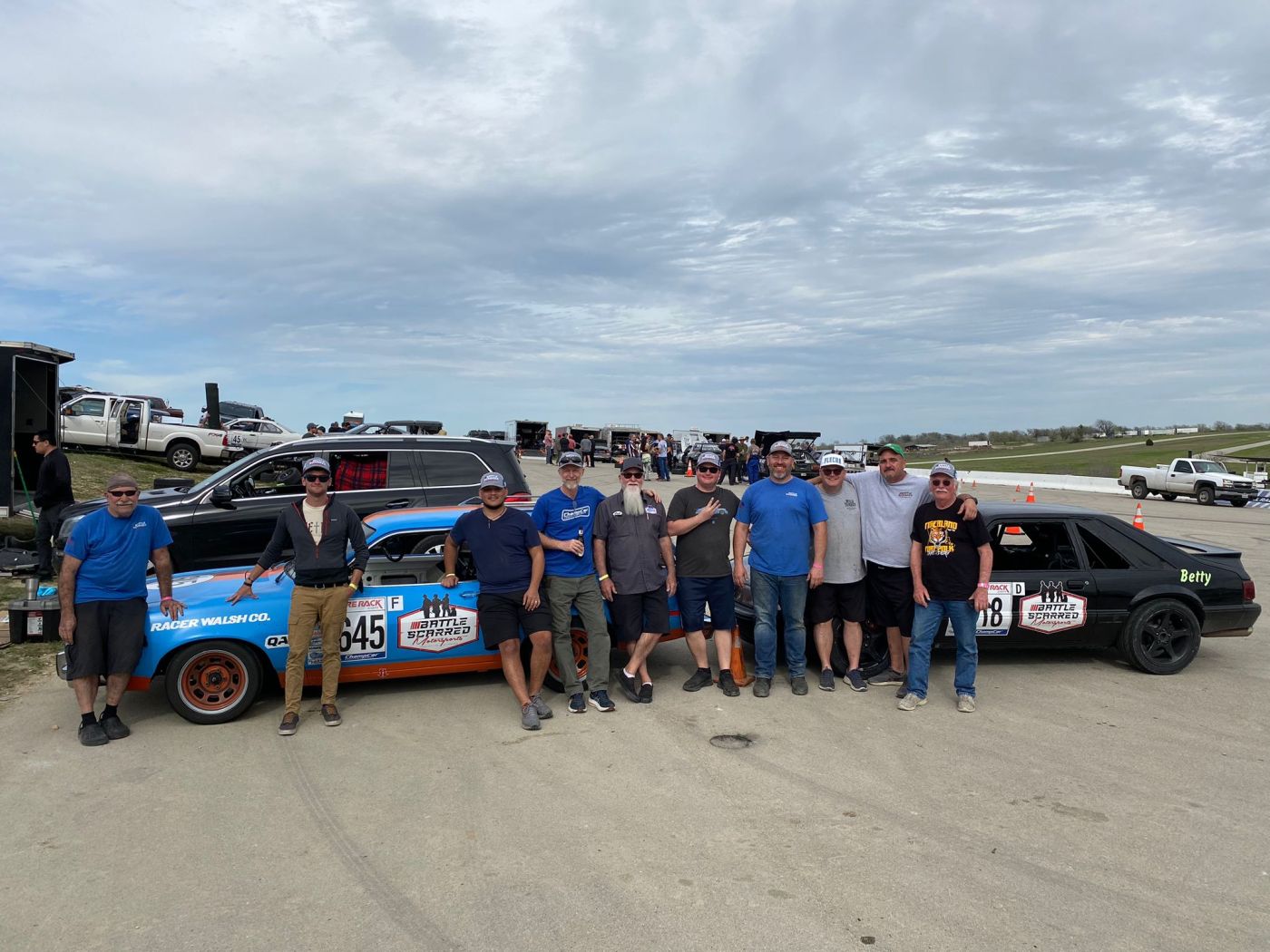


My husband was a veteran of the United States Army stationed at Camp Hanford in the desert of Washington, USA for 3 years training with plutonium missiles that were kept in underground caves where civilians maintained the canisters of plutonium by keeping them submerged under water. Many people in the surrounding towns, i.e. Kennewick, Pasco, Richland, were stricken with cancer in their later years and their children and grandchildren collected large payouts from insurance companies in the area.
Mike went to war in Germany and was stationed at the Berlin Wall Plutonium missile base for 3 years where he was working in an underground bunker with plutonium missiles and computers used to detonate the missiles at the bottom of an elevator shaft.
Doctors in Ontario, Canada diagnosed my husband with Alzheimer’s disease at 76 years old. He was quarantined until he died at 82, but no tests were performed by his doctors to verify Alzheimer’s disease. Perhaps Alzheimer’s disease is, in fact, plutonium poisoning as Germany was saturated by missile warfare during WWII.
Thank you for your service I have a very high regard for people who served in World War II Korea Afghanistan Vietnam Desert Storm I have seen the movie Band of Brothers 8 x I have seen We Were Soldiers The Great Raid the death Bataan March in Korea I’ve seen the documentary on Pearl Harbor not the story of the fluff Pearl Harbor it was awful what happened to our men over there saving our country my uncle was in the Air Force once again they were all great movies but they taught me a lot anyway thank you for your service and thank you for the article
Thank God for all the brave men who fought to preserve humanity.I am a Navy veteran who is so proud of the WW2 veterans,and I am honored to call them brothers,and yes,they saved the world,from tyranny.Just imagine,
American men,fought in the Pacific,Mediterranean,European,Chinese-Burma-Indian theaters of war,so basically they can forever say with the
sublimity of God’s blessings;yes,we saved the world !!!!!
Thanks for the address at the end of the article! I inherited a couple booklets from a neighbor (who passed several years back) about his daily experiences in Europe during WWII. If you make it into an oral or even rewritten story, I’m sure you will leave one particular paragraph out and not make any difference in the story. It is in a diary format. I’ll get it out to you in the near future.
Adam,
Thank you for your service and thank you for writing such an important piece. My grandfather, a WWII Veteran, is a living American legend in our eyes. Next month, our family will honor him by traveling with him and visiting the WWII Museum in New Orleans. There, we will take pictures with his Road to Victory program brick we had engraved and placed on the memorial wall in his honor. We plan to take pictures and document the entire trip. We will remember. Maybe I will send you a photo.